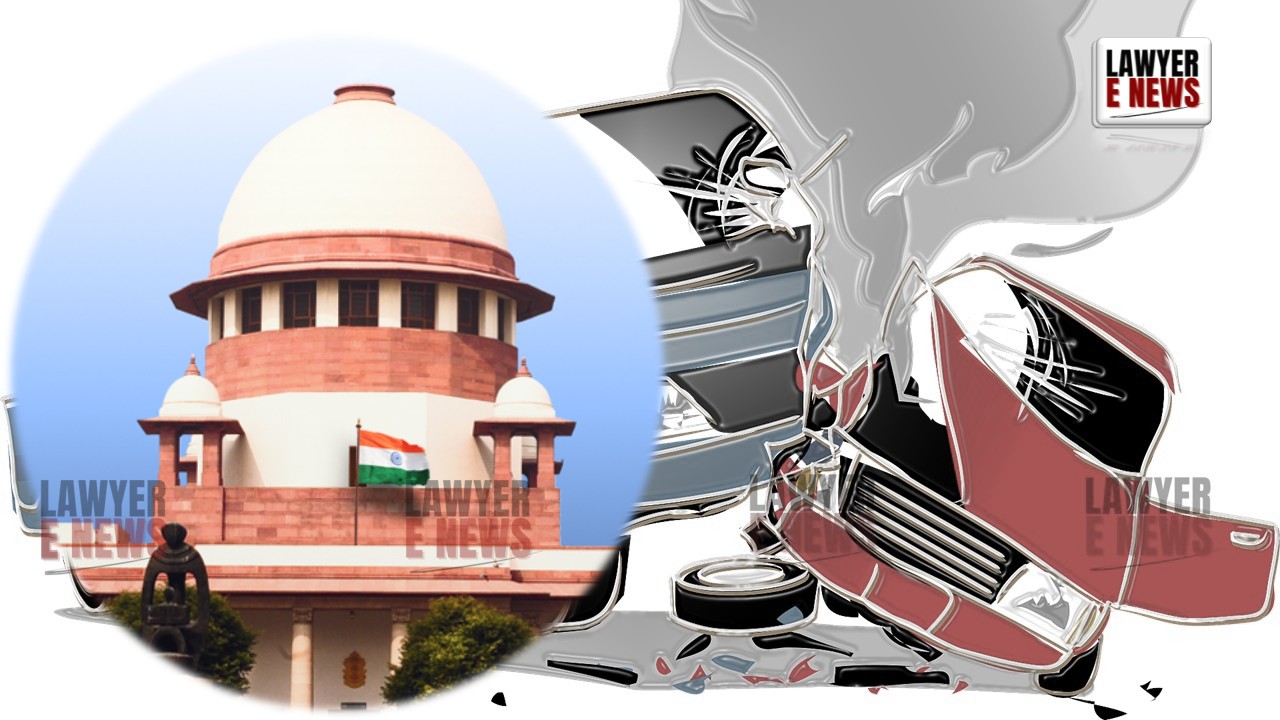-
by Admin
17 February 2026 4:27 AM



“Driving a hazardous goods vehicle without proper endorsement is not a venial breach… it directly relates to skill, safety, and legality” – In a significant judgment reinforcing strict compliance with the Motor Vehicles Act and the Rules framed thereunder, the Supreme Court of India dismissed the appeals filed by M/s Chatha Service Station, the owner of an oil tanker, against the Punjab and Haryana High Court’s orders which upheld the ‘pay and recover’ direction issued to the insurance company in two separate motor accident claims.
The bench of Justices Sudhanshu Dhulia and K. Vinod Chandran held that a driver operating a hazardous goods vehicle without the mandatory endorsement under Rule 9 of the Central Motor Vehicles Rules, 1989 is not a minor or technical violation. The Court affirmed that the absence of such an endorsement justifies the insurer's right to recover the compensation from the vehicle owner.
“It Is Not Merely a Paper Endorsement – It Certifies Skill and Emergency Readiness”: SC on Rule 9 Compliance
The case pertained to a motor accident involving an oil tanker that caused the death of a cyclist and a pedestrian. Though the compensation awarded by the Motor Accidents Claims Tribunal was paid by the insurance company, the tribunal and the High Court directed the insurer to recover the amount from the tanker’s owner and driver, citing the driver’s lack of endorsement to operate a vehicle carrying hazardous substances.
Rejecting the owner's plea that the breach was venial and did not contribute to the accident, the Supreme Court observed: “The breach of non-compliance of the statutory requirement to undergo a training course to upskill the driving efficiency and product safety cannot be brushed aside as a technical breach not contributing to the accident.”
The Court underlined that Rule 9 mandates special training in defensive and advanced driving, product safety, emergency procedures, and first aid, among other things. It held: “The syllabus in Part ‘A’ includes defensive driving and Part ‘B’ is with respect to advanced driving skills and training… Rule 9 deals with the professional skill of driving a specially designed vehicle carrying dangerous or hazardous goods.”
“Statute Recognizes Hazardous Goods Vehicles as a Distinct Category Requiring Special Authorization”: SC on Endorsements
The Court firmly rejected the argument that the driver had a valid licence to drive a transport vehicle and that the accident had nothing to do with the hazardous nature of the cargo. It clarified: “A transport vehicle licence holder… will have to submit an application and obtain an endorsement under Section 11 read with Rule 9 of the Act and Rules.”
Highlighting the classification of vehicles under the statute, the Court further noted: “Clause (j) of Section 10(2) specifically speaks of ‘motor vehicle of a specified description’… by the use of the words ‘class’ or ‘description’ independently, it is clear that the statute has used it disjunctively and not alternatively.”
“Absence of Endorsement Directly Linked to Accident Caused by Rash Driving”: Court Rejects Defense’s Alternate Theory
The driver’s claim that he swerved to avoid pedestrians was disbelieved by the Tribunal based on the testimony of an eyewitness and the FIR. The Court observed: “The deposition of CW2, the eye-witness goes contrary to the said self-serving statement… the accident was caused by the reason of rash and negligent driving of the vehicle.”
Reiterating the principle laid down in National Insurance Co. Ltd. v. Swaran Singh (2004), the Court held: “It is incumbent on the Court/Tribunal… to take a decision as to whether this fact was the main or contributory cause of negligence… In this case, the absence of licence to drive a hazardous goods vehicle was a contributory cause.”
“No Explanation for Non-Production of Training Certificate at Trial Stage”: SC Rejects Evidence Produced in Appeal
The tanker owner attempted to produce a training certificate in the High Court to show that the driver had undergone the required training. However, the Supreme Court upheld the High Court’s refusal to admit the document, citing Order 41 Rule 27 CPC.
The Court stated: “There was also no explanation for non-production of the certificate before the Tribunal… The driver was present before the Tribunal and examined; when such a contention was not taken by him.”
It further observed suspicious circumstances surrounding the certificate: “There is no serial number of issuance in the said document nor is there a round seal of the institution which issued the certificate affixed.”
Insurer Entitled to Recover Compensation from Vehicle Owner
The Supreme Court concluded by affirming that the insurer’s liability to pay the claim amount does not absolve the vehicle owner from reimbursing the amount where there is a clear and proven breach of policy conditions, especially those rooted in statute.
Dismissing the appeals, the Court held: “We find absolutely no reason to entertain the appeals and dismiss the same affirming the direction to the insurance company to pay the amounts to the claimants and recover it from the owner of the oil-tanker.”
Date of Decision: April 8, 2025
